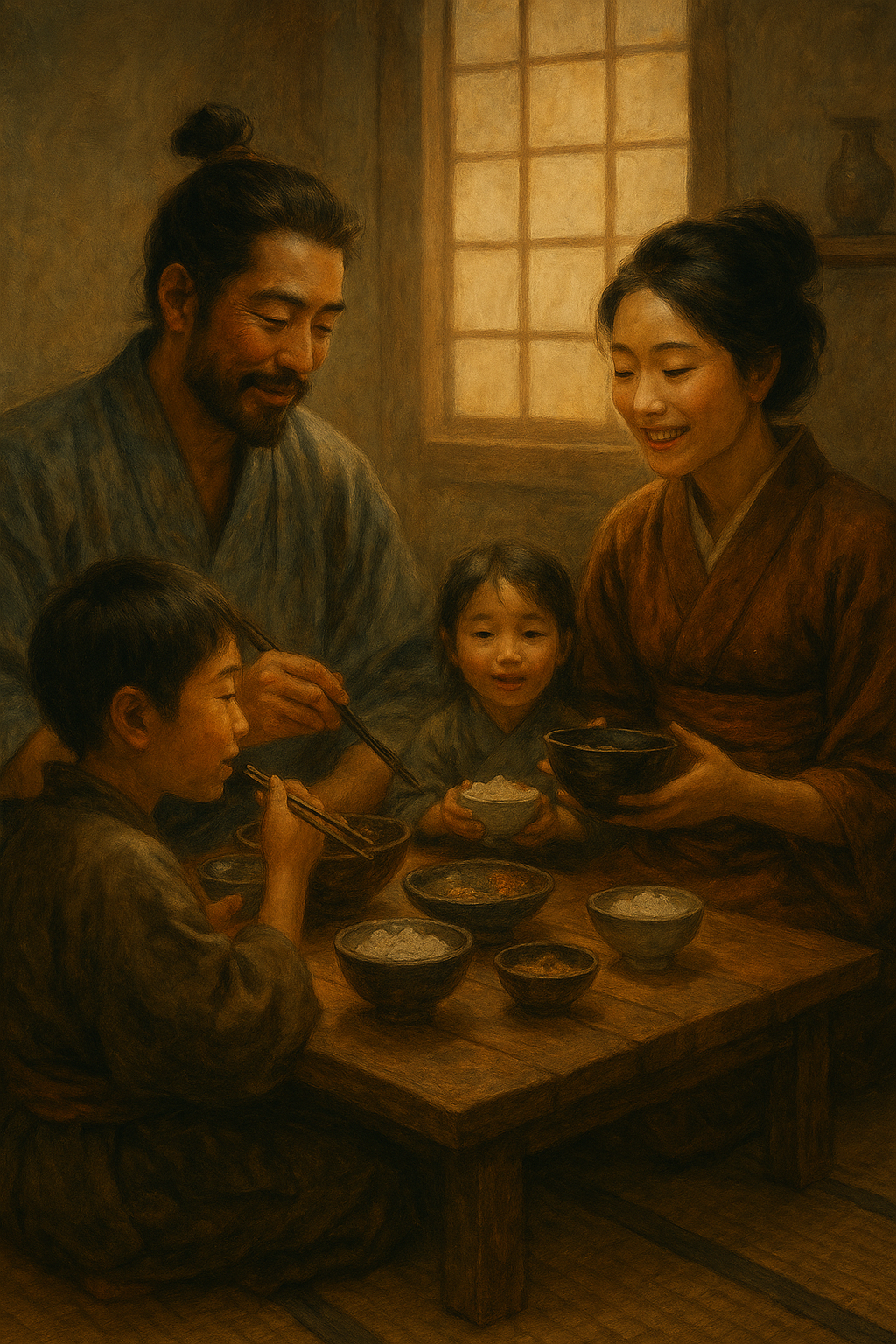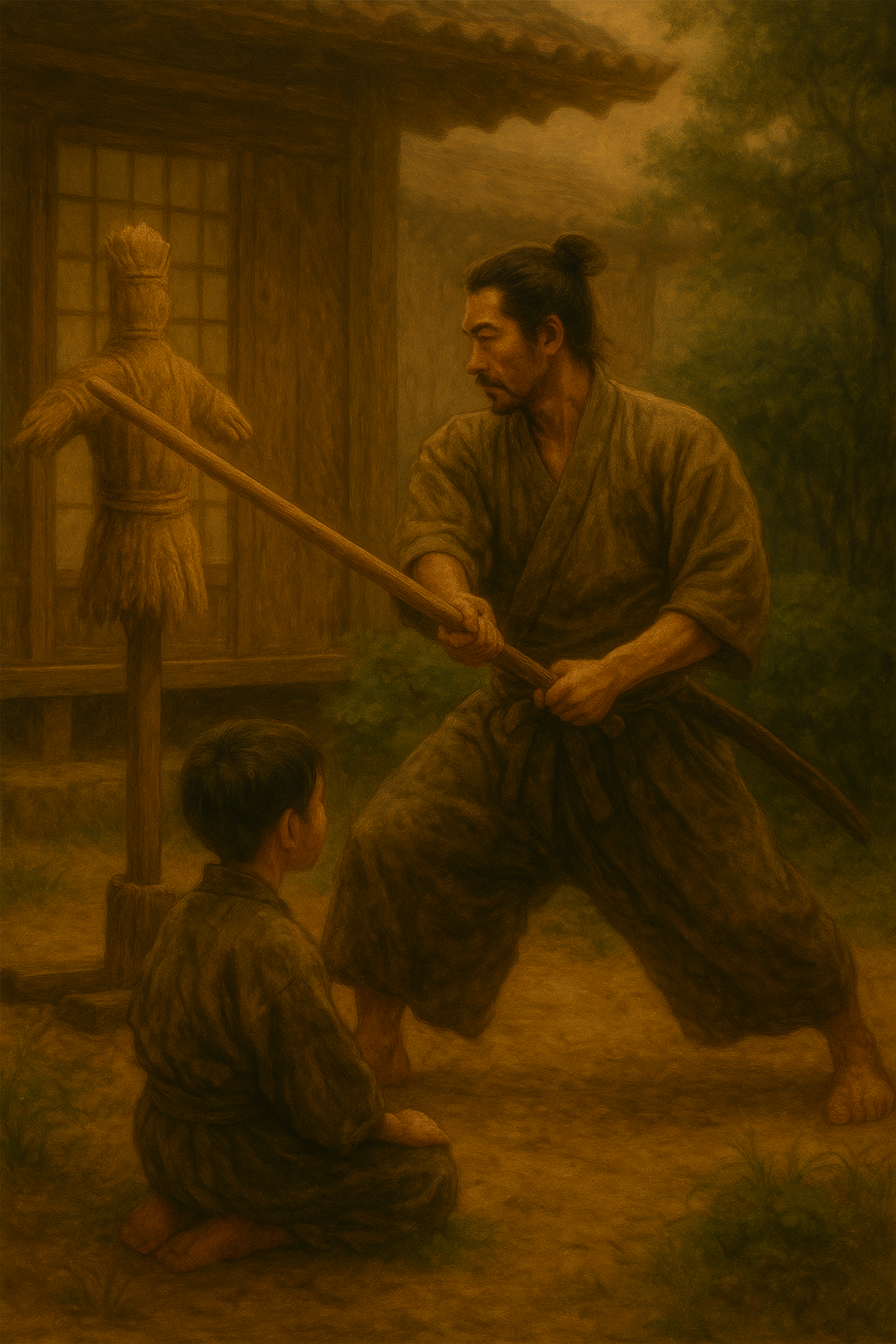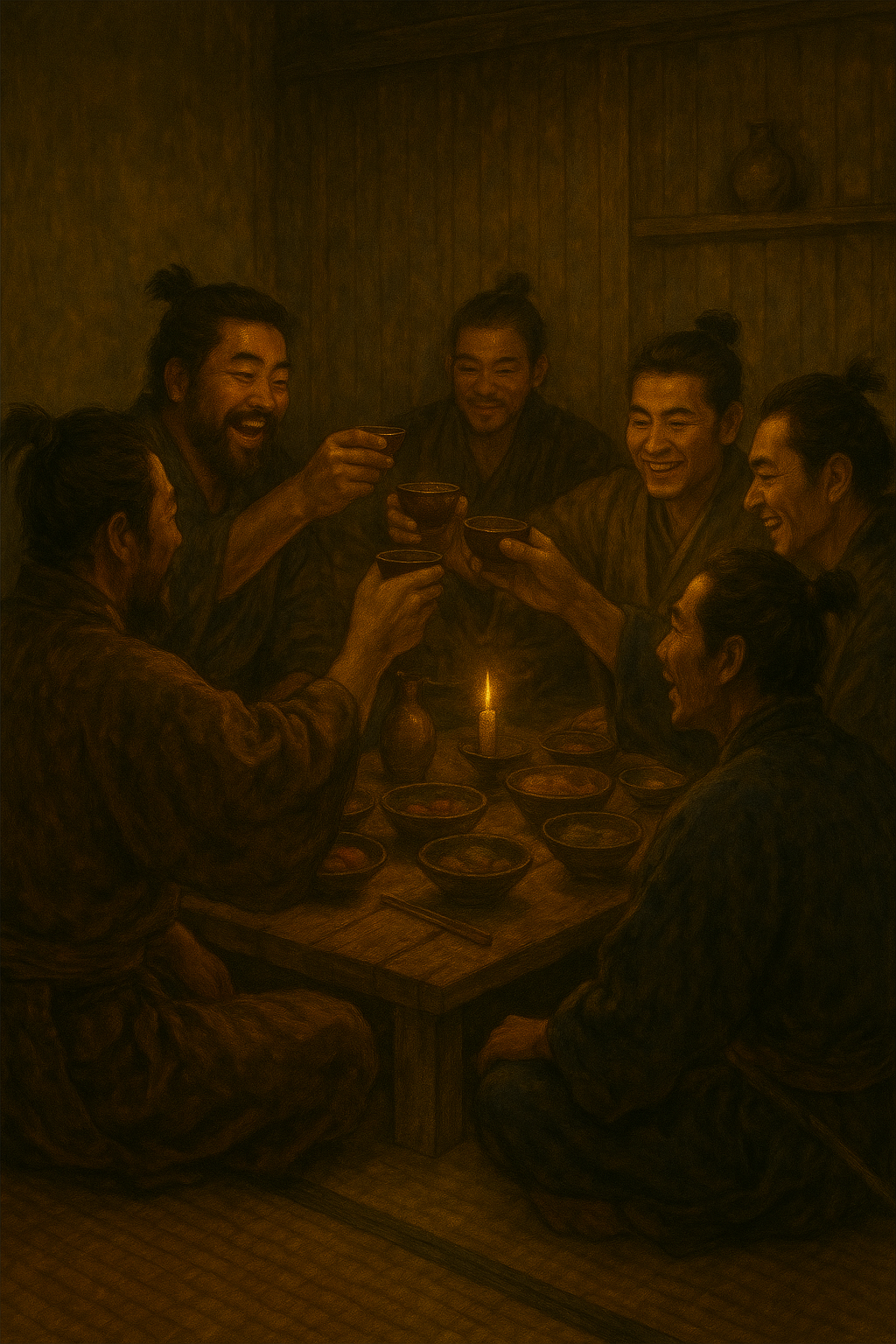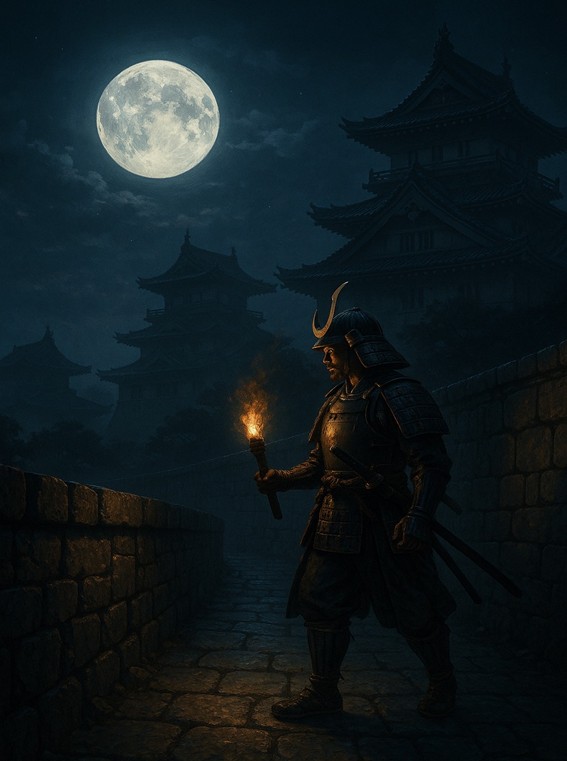After a long day instructing the young retainers at the domain school, Kiyonobu stepped back into his modest home. The weight of armor and the strict air of the training grounds were gone; in their place, he wore a plain indigo-dyed kimono and hakama. His swords rested quietly in the corner, a reminder of his station, while he knelt on the tatami before his family.
The evening meal was humble yet respectable: rice mixed with barley and millet—pure white rice being a luxury reserved for lords and grand occasions—miso soup with radish and fried tofu, a small grilled fish, and pickles in little dishes. His wife, Osaki, had arranged everything neatly. Their children, Shinnosuke and his younger sister Oharu, waited eagerly with bright eyes.
Before lifting his chopsticks, Kiyonobu’s calm voice filled the room: “Itadakimasu.” He guided his children to sit upright, corrected the way their hands held the chopsticks, and reminded them to eat with dignity. Even in the intimacy of a family meal, a samurai’s discipline was never set aside; it was part of life itself.
Outside, the sound of crickets lingered in the dusk. Through the shōji, the silhouettes of bamboo swayed in the autumn breeze. In this quiet, unadorned moment, Kiyonobu felt a peace that no battlefield could ever give. For him, the life of a samurai was not only tested in chaos and duty, but also nurtured in these small rituals of home.



